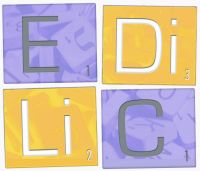Speaker
Description
Smart Knowledge Garden (SKG) is a project of the Research Centre for Didactics and Technology in Teacher Education at the University of Aveiro (CIDTFF). This project aims to create an integrated and open learning environment that fosters connections among different subjects, stakeholders, and educational contexts, while articulating research, teacher education, and community engagement.
Based on this vision, the work presented here consists of an educational proposal grounded in the new module of the project, inspired by Aveiro (Portugal) and its lagoon. This proposal directly connects the SKG project to the city of Aveiro. It consists in the creation of a plurilingual and multimodal pathway based on its Linguistic Landscape (LL), which will be explored by children aged 10 to 12. The suggested pathway will be integrated into the SKG resources and made available, following an iterative process informed by a Design-based Research approach (Cobb & Gravemeijer, 2014).
Drawing on studies on LL in urban areas, where varied identities and cultural traditions intersect, our study is particularly interested in the approach to LL from an assemblage-oriented perspective, which, according to Pennycook (2024), “allows for an appreciation of the ways in which different trajectories of people, semiotic possibilities, and objects meet at particular moments and places” (p. 15). Moreover, mapping and interpreting the polysemic semiotic chains in the LL of cities requires fostering "skills to question, interpret, and critique this reality through its multisemiotic elements" (Kress & van Leeuwen, 2021) and repurposing them through "resemiotization" (Iedema, 2001). This involves transforming these assemblages into diverse semiotic forms—drawings, texts, audio, or artistic expressions—through movement and within a plurilingual and intercultural framework, viewing children as “plurilingual social actors” (Coste et al., 2009).
References
Cobb, P., & Gravemeijer, K. (2014). Experimenting to support and understand learning processes. In Handbook of Design Research Methods in Education (pp. 86-113). Routledge.
Coste, D., Moore, D., & Zarate, G. (2009). Compétence plurilingue et pluriculturelle. Éditions du Conseil de l’Europe.
Iedema, R. (2001). Analysing film and television: A social semiotic account of Hospital: An unhealthy business. In T. Van Leeuwen & C. Jewitt (Eds.), The handbook of visual analysis (pp. 183-204). Sage.
Kress, G. R., & Van Leeuwen, T. (2021). Reading images: The grammar of visual design. Psychology Press.
Pennycook, A. (2024). Language assemblages. Cambridge University Press.
Content/contenu/Inhalt 2
Smart Knowledge Garden (SKG) est un projet du Centre de Recherche en Didactique et Technologie dans la Formation des Formateurs de l’Université d’Aveiro (CIDTFF). Ce projet vise à créer un environnement d’apprentissage intégré et ouvert favorisant des liens entre différentes disciplines, acteurs et espaces éducatifs, tout en articulant la recherche, la formation et la communauté.
Basé sur cette vision, le travail présenté ici consiste en une proposition éducative ancrée dans le nouveau module du projet, inspiré par Aveiro (Portugal) et sa lagune. Cette proposition relie directement le projet SKG à la ville d’Aveiro. Elle consiste en la création d’un parcours plurilingue et multimodal fondé sur son paysage linguistique (PL), qui sera exploré par des enfants (10-12 ans). Le parcours proposé sera intégré aux ressources du SKG et rendu disponible, suite à un processus itératif informé par une perspective de Design-based Research (Cobb & Gravemeijer, 2014).
S’appuyant sur des études sur les PL urbaines, où diverses identités et traditions culturelles se croisent, notre étude s'intéresse à l'approche du PL sous un angle d'assemblage, qui, selon Pennycook (2024), “allows for an appreciation of the ways in which different trajectories of people, semiotic possibilities, and objects meet at particular moments and places” (p. 15). De plus, cartographier et comprendre ces chaînes complexes et polysémiques dans les PL implique de mettre en place des “pedagogical practices that promote skills to question, interpret, and critique this reality through its multisemiotic elements” (Kress & van Leeuwen, 2021) et aussi de reconfigurer ces assemblages sémiotiques à travers des processus de “résemiotisation” (Iedema, 2001). Cela implique de transformer ces assemblages en diverses formes sémiotiques — dessins, textes, audios ou expressions artistiques — à travers le mouvement et dans un cadre plurilingue et interculturel, en considérant les enfants comme des "acteurs sociaux plurilingues" (Coste et al., 2009).
| Title/ titre/Titel 2 | Du jardin à l'écologie de la ville: un parcours plurilingue et multimodal comme outil pédagogique et didactique pour la réinvention des espaces et la construction de sens |
|---|

